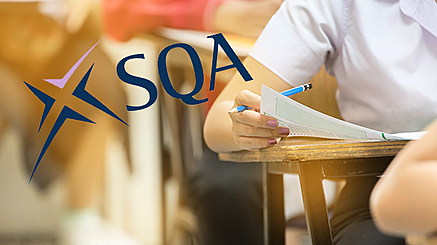Process Of Scottish School Exam Results Found To Be Highly 'Unequal'

With the onset of COVID-19, we knew that education would be indelibly effected by the pandemic.
In Ireland, a cancellation of State exams have led to a process of 'calculated grades' which has already been deemed to be controversial. When the Leaving Cert results are released on September 7, there is bound to be far more chatter about unfairness in our education system.
For an insight into what may happen, Scotland released the results of their State exams yesterday, and it did not go well.
Teacher's were asked to give an honest assessment of their students work. Then, the Scots used a system of moderation, which brought schools across the country in line with their results of previous years. Rather than utilise data from this year's class of students, the Scottish Qualifications Authority used a "constrained" method which kept schools in line with past results, according to the professor of education policy at Edinburgh University, Lindsay Paterson.
"An outstanding student in an average school will be likely to have had their grades pulled down. This is very unfair.
"The approach is also unfair because students in small schools or in unpopular subjects will be less likely to have their grades adjusted than students in larger groups. That’s totally arbitrary.”
Students deserve answers for the SQA exam results fiasco.
Let's #ReviewTheResults.Sign our petition:https://t.co/9OaakuJ3tG pic.twitter.com/nsMCq8Kq8s
— Scottish Labour (@scottishlabour) August 6, 2020
It was a perspective shared by the majority of opposition politicians in the Scotland, with the shadow Scotland Secretary, Labour's Ian Murray MP, saying that the Scottish education system "bakes in inequality".
The data from the results shows that pass rates increased marginally in 2020 that over the past three years. However, the predicted pass grades from teachers were much higher than the actual results, with the moderation process bringing those numbers down by roughly ten percent.
Furthermore, students from lower income areas were adversely affected by moderation processes. The pass rate for lower income students dropped by 15.2 percent, compared to a 6.9 drop for students from wealthier backgrounds.
The SQA's moderation process downgraded just over 124,000 results.